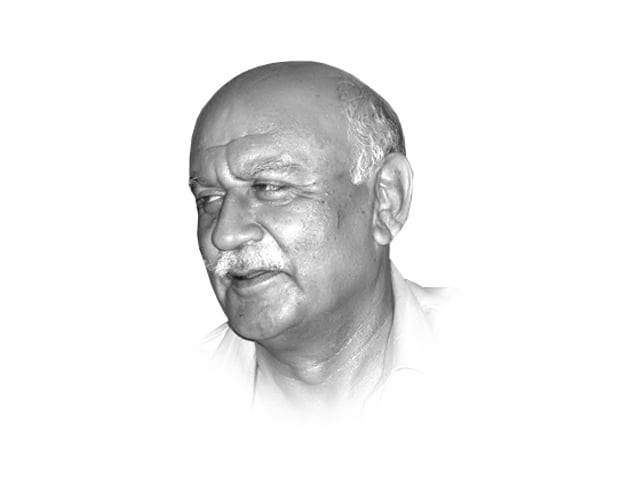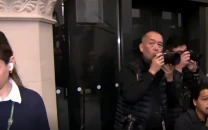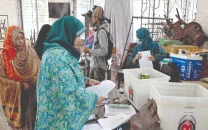Who represents Afghanistan?
Hamid Karzai should be leading the talks with other Afghans but we know that is not going to happen.

The writer is a retired brigadier and a former president of the Islamabad Policy Research Institute
Who should be negotiating Afghanistan’s future with whom? Ideally, the Afghan government should be deciding its own future. It should take over all security duties from the US, as the latter begins to leave. It should be readying for next year’s elections and transit to the next elected government — ideally. But that, regretfully, is not the case.
Alternatively, Hamid Karzai should be leading the talks with other Afghans, particularly the Taliban. But we know that is also not going to happen.
The incumbent Karzai regime represents an infinitesimally small minority of the Afghan people and the vast majority of Afghans hate it more than they hate Americans. What is more, the Karzai regime is notoriously corrupt, inefficient and highly unlikely to oversee a fair election next year.
If it is not the Karzai regime that can represent the Afghan people, who can? The Taliban? If so, which faction(s)? Mulla Omar’s faction certainly is more representative of the Afghans than the Karzai regime. But it still represents only some of the Afghan Pashtun, not all of them. And, by now, there are many other splinter groups of the Taliban. And other ethnic groups of Afghans do not accept the Taliban. Moreover, while some of the Afghan Pashtun might like to see the Taliban make peace and become a part of the future political dispensation in Afghanistan, even they would not like to see another Taliban takeover. Let us not omit to mention the other major actor among the Pashtuns: the Haqqani network, as the Americans choose to refer to it. We might safely ignore the likes of Gulbuddin Hekmatyar, but to ignore the Haqqanis would be at our own peril.
If thus far we agree, there can only be one way forward, i.e., before talking to the Afghans, the US has to glue together a group that can be considered truly representative of all the Afghan people, before they can speak for all the Afghan people. If this has to be an additional burden for the US to carry, it is important to hark back to where we began: for this endeavour to succeed, it must be Afghan-led and Afghan-owned. Therefore, it must be sincerely pursued. The US, and Pakistan, must facilitate this effort sincerely and without prejudice, otherwise, it will not succeed.
Ideally, the effort must be led by an individual (and/or an organisation) that has some political legitimacy and can acceptably reach out to the Taliban, as well as represent all Afghan ethnicities and be acceptable to the Afghan people, the US and Pakistan, as “Afghan”.
The Afghan Peace Council seems ideal. The old Ustaad Burhan is no more and, his son, Salahuddin, might only be a patch on the father, but he is still a Rabbani. The Council was set up by the Karzai government, so it enjoys political legitimacy. Led by a Tajik, with the representation of all ethnicities, it could be considered truly representative.
However, as always, there is a catch. Even as the Taliban have reluctantly shown a willingness to talk to the younger Rabbani, they are not prepared to negotiate with an organ of the Karzai government. Doesn’t that make the solution obvious? Make the Afghan Peace Council independent of Karzai.
If this Council was to be placed on the UN payroll as an independent body and tasked to negotiate with all Afghan groupings, with the US/Pakistan acting as facilitators, could it work? Perhaps, but on the face of it, this seems to be the best available alternative.
Published in The Express Tribune, July 3rd, 2013.
Like Opinion & Editorial on Facebook, follow @ETOpEd on Twitter to receive all updates on all our daily pieces.



















COMMENTS
Comments are moderated and generally will be posted if they are on-topic and not abusive.
For more information, please see our Comments FAQ